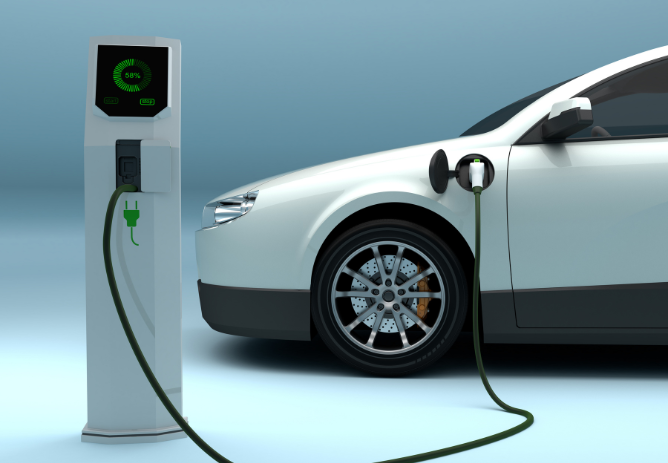04 June 2024
Advantages & Disadvantages of Electric Cars in Ireland
Switching to electric vehicles is a growing trend in Ireland. The trend has slowed down somewhat from the highs of 2023. In the new car market share by engine type for 2024 up until 1st May 2024 (SIMI), Petrol cars lead the new car market at 32.92%. followed by Diesel at 23.56%, then Hybrid (Petrol Electric) at 20.44%, Electric at 12.70%, and Plug-in Electric Hybrid at 8.76%.
With fuel costs continuing to stay high, electric cars may become an increasingly attractive option for many consumers.
As a leading provider of car loans, Synergy Credit Union understands the decisions facing those looking to buy a new car, both financially and practically. While hybrids are often included in the electric category, they still rely on fuel.
This blog focuses on Battery Electric Vehicles (BEVs), which run exclusively on an electric engine powered by a battery.
Here are the key advantages and disadvantages of fully electric cars:
Advantages of Electric Cars:
- Lower Running Costs Electric cars free you from the worry of rising petrol and diesel prices. Powered by electricity, they can be charged at public charging points or at home. The Sustainable Energy Authority of Ireland (SEAI) estimates that switching to an electric vehicle can save you up to 70% on fuel costs.
- Reduced Maintenance With fewer moving parts, electric vehicles are cheaper to service. They require less frequent maintenance, such as oil changes and fuel filter replacements. Regenerative braking also means brake pads last longer than those in petrol or diesel cars.
- Zero Emissions Electric cars produce no tailpipe emissions, making them an environmentally friendly choice. This helps reduce your carbon footprint and contributes to a cleaner environment.
- Lower Car Tax In Ireland, electric cars are taxed at the lowest rate of €120 per year. This is unlikely to change soon, as the government aims to have over 1 million electric vehicles on the road by 2030.
- Longer Battery Life Early concerns about battery life have been addressed with technological advancements. Most new electric vehicles come with a battery warranty of up to 8 years, and the batteries are designed to last much longer.
- Improved Range Modern electric vehicles typically offer a range of around 300 km, with some models providing even greater distances. For example, the Hyundai Kona Electric offers two battery sizes: a 48.4 kWh battery with a 377 km range and a 65.4 kWh battery with a 514 km range.
- Increased Car Supply Many manufacturers are now prioritising electric car production. Volkswagen expects 50% of its new car sales to be fully electric by 2030, and Peugeot plans to sell only electric vehicles by 2030. This will increase consumer choice as more models become available.
Disadvantages of Electric Cars :
- Availability of Charging Stations Although the Irish government has ambitious plans for electric vehicle adoption, public charging infrastructure is still lacking, especially in rural areas. Installing a home charger can be a significant expense but offers the greatest convenience. The Electric Vehicle Home Charger Grant (SEAI) provides a grant up to the value of €300 towards the purchase and installation of a home charger unit.
- Rising Electricity Costs While electric cars can save on fuel costs, rising electricity prices cannot be ignored. Using ESB's electric car charger cost calculator, a 65.4 kWh Hyundai Kona would cost up to €20 to charge for a range of over 500 km. This is still economical but may not meet everyone's expectations.
- High Purchase Price Electric vehicles are generally more expensive than petrol or diesel cars, even with the government’s €3,500 grant for new EVs.
- Long Charging Times Fast-charging public points can take over an hour to charge an EV. A home charger might take 8-9 hours for a full charge. This is much longer than the few minutes it takes to fill a petrol tank, which can be a drawback for those in a hurry.
- Lower Range for Budget Models Budget electric vehicles often have smaller batteries and shorter ranges, typically around 300 km. This can cause range anxiety, especially for long-distance travel. Larger battery models offer better ranges but are more expensive.
- Range Decreases in Cold Weather Ireland's cold weather can reduce an electric vehicle's range by up to 20%. Cold temperatures also increase the need for heating, which further reduces range. However, on sunny days, some batteries may exceed their stated range.
Switching to an electric car involves weighing these advantages and disadvantages.
As the industry evolves and technology improves, many of the current drawbacks may diminish, making electric vehicles an even more compelling choice in the future and will help enable Ireland to meet its 2030 targets.
* Lending criteria, terms and conditions apply. Rates and loan terms are correct as of 11 July 2023 and are subject to change. Minimum loan term is 1 month, and maximum term is 5 years for Electric Car loans. On a €20,000 loan over 5 years, at a variable rate of 6.99% (7.25% APR) you will pay €396 a month. Total cost of credit € 3,759. Total amount repayable €23,759.
Synergy Credit Union is regulated by the Central Bank of Ireland.
Warning: If you do not meet the repayments on your credit agreement, your account will go into arrears. This may affect your credit rating, which may limit your ability to access credit in the future.









